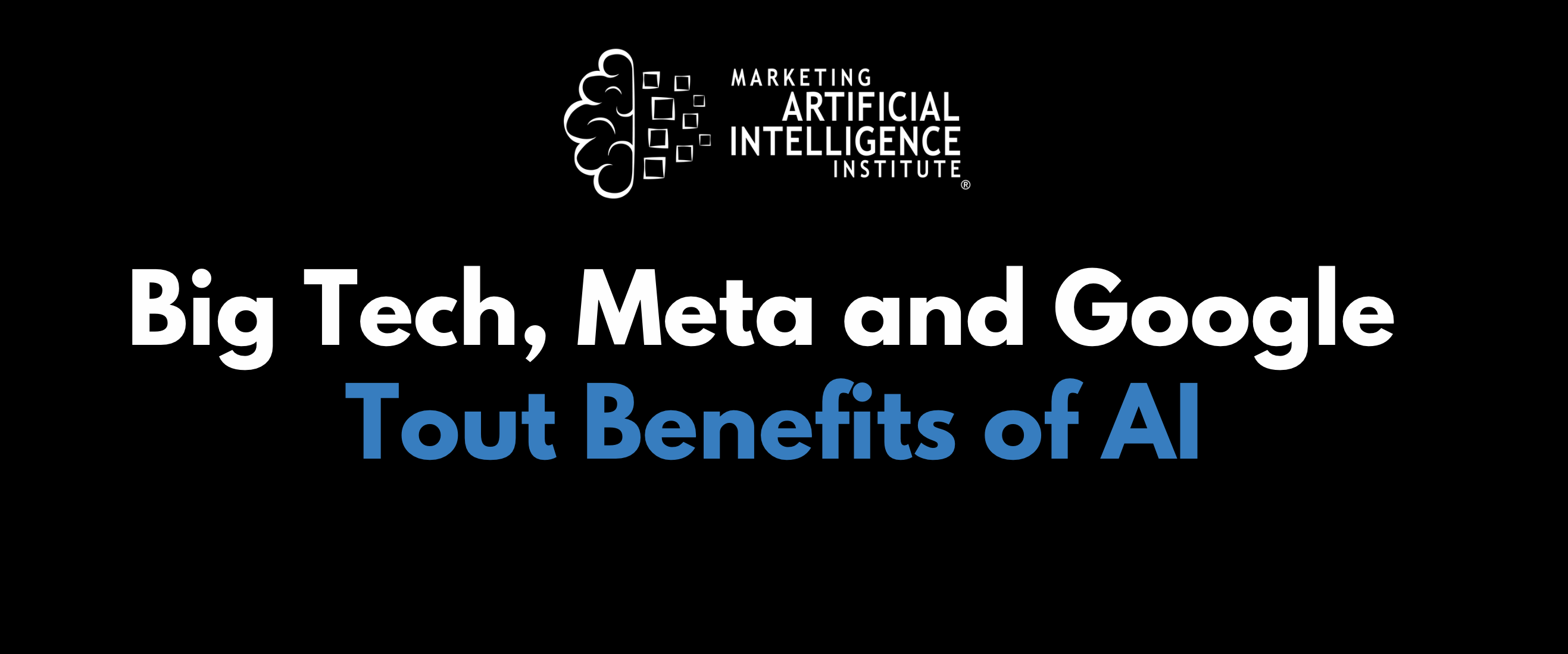Tech giants are working overtime to reframe the narrative around artificial intelligence, rolling out a wave of positive announcements focused on jobs, education, and economic impact.First, Meta unveiled what it describes as a $600 billion commitment to American infrastructure and jobs, touting its new AI-optimized data centers as engines of growth. The company published a report claiming its U.S. projects have:
- Supported 30,000 skilled trade jobs
- Added 15 gigawatts of power
- Pledging to be "water positive" by 2030.
On the same day, Google announced a $5 million investment through a partnership with the Oklahoma Thunder to expand AI training and workforce programs for local residents.
Both announcements come amid heightened public criticism that Big Tech's AI push threatens jobs, privacy, public trust, and the environment. Google and Meta’s moves are a coordinated effort to get ahead of a potential societal backlash.
To understand what’s really driving this, I spoke with SmarterX and Marketing AI Institute founder and CEO Paul Roetzer on Episode 179 of The Artificial Intelligence Show.
Well-Calculated PR Moves
This sudden focus on community investment is a classic and predictable strategic move. Roetzer notes that some of the most secure jobs in the near future will be in lobbying, community investment, and public relations for the frontier AI labs.
These companies, he explains, will be working overtime in Washington and will pour money into local community programs similar to Google’s investment in Oklahoma.
“This is how it starts,” Roetzer says. “This is PR at its core: You try to affect the way people perceive things.”
This isn't necessarily a criticism, he explained; it's simply the function of public relations in a high-stakes environment.
“I think we are going to see a flood of stories like these coming from the major AI companies,” Roetzer said.
The New Political Talking Points
These announcements are important to pay attention to because they are the foundation for the political and social debates to come. These are the messages that will be repeated as the AI firestorm intensifies, Roetzer says.
“We are going to hear endlessly about how many jobs are created by data centers,” he says.
He also points out the need to look closer at these claims, questioning the sustainability of such jobs. For instance, distinguishing between temporary construction roles to build a data center and long-term employment after it's built.
A Coordinated Effort
These PR campaigns are not one-off events. Roetzer emphasizes these coordinated actions, from lobbying efforts in Washington to community investments in Oklahoma, are part of a much larger, more complex story.
“You see how this all is connected, and it's a fascinating picture,” he says.
Mike Kaput
Mike Kaput is the Chief Content Officer at SmarterX and a leading voice on the application of AI in business. He is the co-author of Marketing Artificial Intelligence and co-host of The Artificial Intelligence Show podcast.


